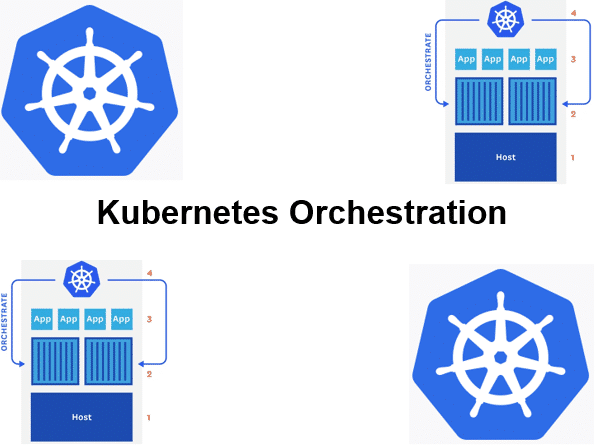-
Learning by doing
-
Trainers with practical experience
-
Classroom training
-
Detailed course material
-
Clear content description
-
Tailormade content possible
-
Training that proceeds
-
Small groups
In the course Kubernetes Orchestration from SpiralTrain participants learn how to set up a Kubernetes cluster to deploy and manage a system of microservices and containers. Kubernetes provides container orchestration in a system of container-based microservices.
The course Kubernetes Orchestration starts with a discussion of the packaging of applications in images from which containers are instantiated. In particular Docker Containers, Docker Engine and the role of Dockerfiles and docker-compose.yaml are discussed.
Next it is explained which components make up a Kubernetes cluster, how these components are built up and how they work together. This includes Nodes, Pods and Services. Also covered is how the kubectl command line tool can be used to control the cluster.
The course Kubernetes Orchestration also explains the architecture of a Kubernetes cluster with the scheduler, replication controllers and rest services. The role of YAML Files, the Pod Manifest, Metadata and ConfigMaps is treated.
Then it's time to cover Cluster Deployments. The deployment lifecycle of a cluster with container states such as Desired State, Actual State and Pod phases such as Complete Stage and Failed Stage is treated. And scaling of deployments and the rollback of deployments are also discussed.
Subsequently attention is paid to the various services that are present in a Kubernetes cluster, such as the ClusterIP, the NodePort and the LoadBalancer service. Service discovery and port configurations are covered as well.
Finally networking in a Kubernetes cluster is on the program of the course. Container communication and pod communication are treated. Ingress networking and ingress rules are explained.
The course Kubernetes Orchestration is intended for developers and devops professionals who want to gain knowledge of Kubernetes for deploying and orchestrating containers.
To participate in the course Kubernetes Orchestration participants must have experience in developing applications. Experience with containers is recommended.
The theory is covered on the basis of presentations. The concepts are explained with demos. The theory is interchanged with exercises. The course times are from 9.30 to 16.30.
After successfully completing the course participants receive a certificate Kubernetes Orchestration.

Module 1 : Kubernetes Intro |
Module 2 : Kubernetes Components |
Module 3 : Kubernetes Architecture |
|
What is Kubernetes? Packaging Applications Images Docker Containers Docker Engine Environment Replication Control Groups Namespaces Layered File System Resource Utilization Development Life Cycle Containers and Microservices Container Orchestration |
Kubernetes Cluster Nodes and Pods Services kubectl cluster-info Kubernetes Dashboard Grafana Monitoring Rest-API Swagger Dashboard Master Container kube-scheduler kube-apiserver Using CLI |
Scheduler Replication Controllers Rest Services etcd kube-proxy YAML Files Pod Manifest Metadata Label Selectors Storage ConfigMaps ConfigMap from File ConfigMap in Pod |
Module 4 : Cluster Deployments |
Module 5 : Kubernetes Services |
Module 6 : Networking |
|
Deployment Lifecycle Deployment Stages Progressing Stage Desired State Actual State Complete Stage Failed Stage Rollback Deployments Scale Deployment Pause Deployment Cluster Workloads Health Checks Life Cycle Hooks |
Types of Services ClusterIP NodePort LoadBalancer ExternalName Proxy Modes userspace iptables Service Discovery DNS versus ENV Var Headless Services Port Configurations Secrets |
Container Communication Pod Communication Pod to Service Communication Ingress HTTP(S) Routes Ingress Rules Types Of Ingress Single Service Simple Fanout Virtual Hosting Ingress Controllers Helm Charts Operators |
